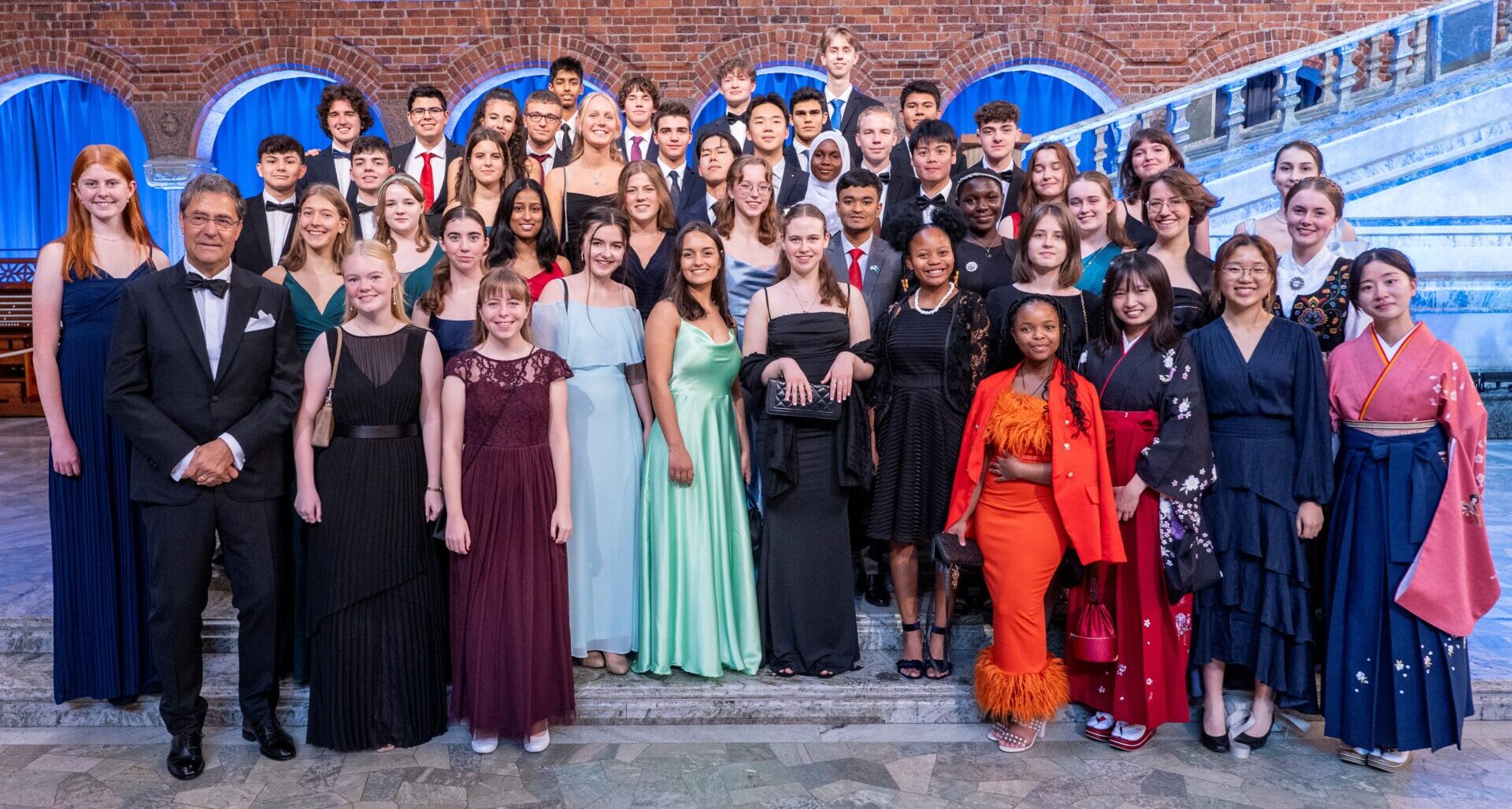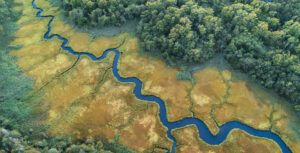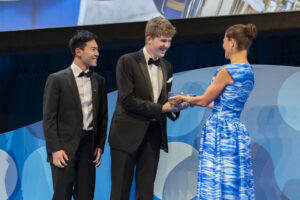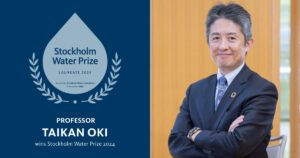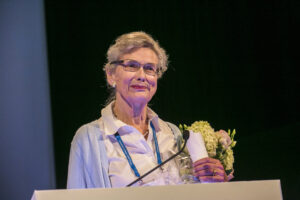Andrea Rinaldo, the 2023 Stockholm Water Prize (SWP) Laureate, has joined the jury of the Stockholm Junior Water Prize (SJWP). We met him and talked about his motivation to join the jury, why it is important to listen to youth, and what sparked his own interest in science and water.
Every year since 1997, the Stockholm Junior Water Prize has united thousands of young researchers between the ages of 15 to 20 in a global competition that brings forward innovative ideas to solve water challenges. In the final stage of the contest, a winner is chosen. Additionally, a Diploma of Excellence is awarded.
Selecting winners out of many outstanding projects is a complex and challenging task that is carried out by the Prize’s jury, a group of leading scientists. The jury members spend two months examining the different submissions and two days interviewing the finalists in person.
Recently Andrea Rinaldo, the 2023 SWP Laureate has joined the jury of the SJWP, forming a bridge between the two renowned water prizes. We met him and talked about youth inclusion, as well as his motivation for becoming a scientist and joining the SJWP jury.
How did it come about that you joined the jury for the SJWP?
The idea to engage with the SJWP first came up when I was in Stockholm last year during World Water Week 2023. I was so impressed by the SJWP finalists. Yet, I first had to check whether the demanding task was compatible with previous commitments I had made as I will retire this year and there is still a lot to do. When it became clear that I could fully commit to the task, I enthusiastically accepted the invitation to join.
I am very happy to join the jury. I am an opinionated person and excited to discuss water challenges and solutions with those participating in the contest as well as my colleagues on the jury. I think that one of the best things about being a professor is to continuously be in contact with young people whose ideas and motivations are amazing.
Why is it important to listen to youth?
It is always fundamental to listen to youth. Age changes you. Perhaps, one easily gets progressively more conservative as time goes by. Young people bring a push for fresh and radical ideas, a spark for change. They add a new angle and a new way of thinking. Even if there might at times be disagreements between generations, it is imperative to take youth perspectives and suggestions very seriously.
What I and other scientists from my generation can return when collaborating with students and young collaborators, is experience around what has been done and knowledge of scientific methods as well as how to assess projects. I believe that we need to do everything we can to encourage young people, encourage their enthusiasm, and tell them: We count on some of you to become SJWP or SWP winners in the future.
Do you have a moment in your own life that sparked your interest in science and hydrology?
Yes, I do. I was born and raised in Venice. In 1966, I was twelve and we had a major flood in town. It generated a wave of concerns around the survival of my hometown. When the water receded, it left misery behind. We were unprepared for the flood and ended up not having electricity for a long time. I understood that our relation to water was vital for the future of Venice. At the time, something clicked, and I decided that I wanted to become a water engineer, with saving my hometown in the back of my mind.
I have to say that this is not a very distinctive thing. On the contrary, it is a local joke to say that everybody teaches hydraulics in Venice. We live in a fragile setting. We see the water all the time and everybody has a perception of what is at stake. The sea level rise we face today is a different challenge, a more chronic problem, that is more subtle. It requires different disciplines as well as new solutions. And of course, fresh perspectives from young people.
